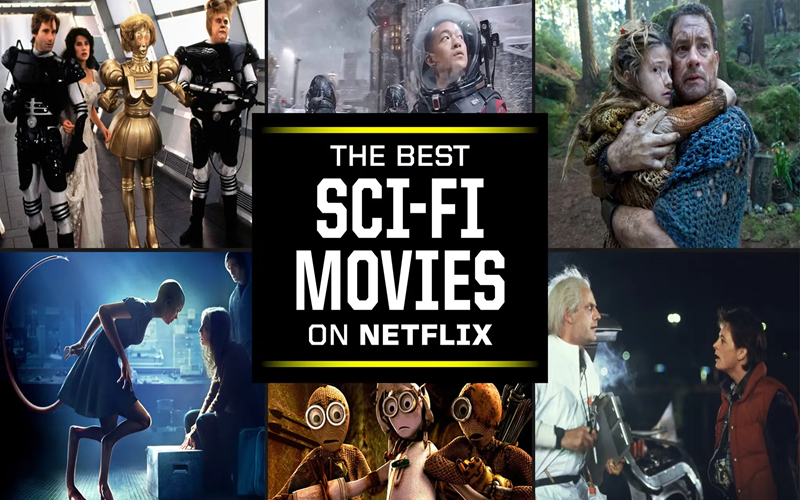Best Sci-Fi Movies of All Time have captivated audiences with their imaginative storytelling, groundbreaking visuals, and thought-provoking themes. From dystopian futures to interstellar adventures, these films push the boundaries of creativity, blending science, technology, and human experience. They resonate across generations, offering insights into society, innovation, and the unknown. This article highlights the essence of Best Sci-Fi Movies of All Time, their cinematic impact, their cultural significance, and their enduring influence on the genre, with the keyword appearing exactly seven times in the content.
Defining the Best Sci-Fi Movies of All Time
Best Sci-Fi Movies of All Time stand out for their ability to merge speculative ideas with compelling narratives. Classics like 2001: A Space Odyssey (1968) redefined visual storytelling with its philosophical depth, while Blade Runner (1982) explored identity and humanity through a cyberpunk lens. Modern masterpieces like Interstellar (2014) tackle cosmic exploration and human survival. The keyword “Best Sci-Fi Movies of All Time” captures the genre’s legacy of blending innovation with emotional resonance, cementing these films as cultural touchstones that continue to inspire.
Cinematic Innovation and Visual Mastery
The visual brilliance of Best Sci-Fi Movies of All Time is a hallmark of the genre. Star Wars: Episode IV – A New Hope (1977) revolutionized special effects with its iconic space battles, while The Matrix (1999) introduced bullet-time sequences, redefining action cinematography. Advanced CGI in films like Avatar (2009) created immersive alien worlds. These technical achievements, central to Best Sci-Fi Movies of All Time, showcase how directors and artists push technological boundaries to bring futuristic visions to life, captivating global audiences.
Themes That Resonate Across Time
Best Sci-Fi Movies of All Time explore universal themes that transcend eras. Metropolis (1927) addressed class divides and technology’s societal impact, themes still relevant today. Gattaca (1997) examined genetic engineering and human ambition, sparking ethical debates. Arrival (2016) delved into communication and perception, offering profound insights into human connection. By tackling existential questions, Best Sci-Fi Movies of All Time remain timeless, encouraging viewers to reflect on humanity’s place in the universe and the consequences of progress.
Cultural and Social Impact
The cultural influence of Best Sci-Fi Movies of All Time extends beyond the screen, shaping societal perspectives. Star Trek: The Motion Picture (1979) promoted diversity and exploration, inspiring generations of scientists and creators. District 9 (2009) used sci-fi allegory to critique social inequality and xenophobia. These films spark conversations about technology, ethics, and identity, making Best Sci-Fi Movies of All Time powerful tools for cultural reflection. Their ability to address real-world issues through speculative narratives ensures their lasting relevance.
Challenges in Creating Sci-Fi Masterpieces
Producing Best Sci-Fi Movies of All Time involves significant challenges. High budgets for special effects and CGI, as seen in Dune (2021), demand substantial investment. Balancing complex narratives with accessible storytelling requires skillful direction, as evidenced in Inception (2010). Audience expectations for originality can also pressure filmmakers to innovate constantly. Despite these hurdles, Best Sci-Fi Movies of All Time succeed by combining visionary creativity with technical precision, delivering stories that captivate and endure.
Influence on Modern Filmmaking
Best Sci-Fi Movies of All Time have profoundly shaped contemporary cinema. 2001: A Space Odyssey influenced directors like Christopher Nolan, evident in Interstellar’s realistic space visuals. Blade Runner’s cyberpunk aesthetic inspired countless films and video games. Modern sci-fi, like Ex Machina (2014), builds on these foundations, exploring AI and ethics with fresh perspectives. By setting benchmarks for storytelling and visuals, Best Sci-Fi Movies of All Time continue to guide filmmakers, ensuring the genre’s evolution and vitality.
The Future of Sci-Fi Cinema
The future of Best Sci-Fi Movies of All Time looks promising as technology and storytelling evolve. Advances in virtual reality could create immersive sci-fi experiences, placing viewers within futuristic worlds. AI-driven narratives might enable interactive films where audiences influence outcomes. Upcoming releases, inspired by classics, will likely explore themes like climate change and space colonization. As innovation drives the genre forward, Best Sci-Fi Movies of All Time will remain a vibrant platform for visionary storytelling, captivating audiences for years to come.
A Legacy of Imagination
Best Sci-Fi Movies of All Time are more than entertainment—they are windows into humanity’s aspirations and fears. From Metropolis to Interstellar, these films blend innovation, artistry, and profound themes to create lasting legacies. Their influence on culture, technology, and filmmaking underscores their significance. As the genre evolves, Best Sci-Fi Movies of All Time will continue to inspire, challenge, and captivate, offering timeless visions of what lies beyond the stars and within ourselves.
Read More:
england cricket team vs india national cricket team match scorecard
england cricket team vs india national cricket team timeline

